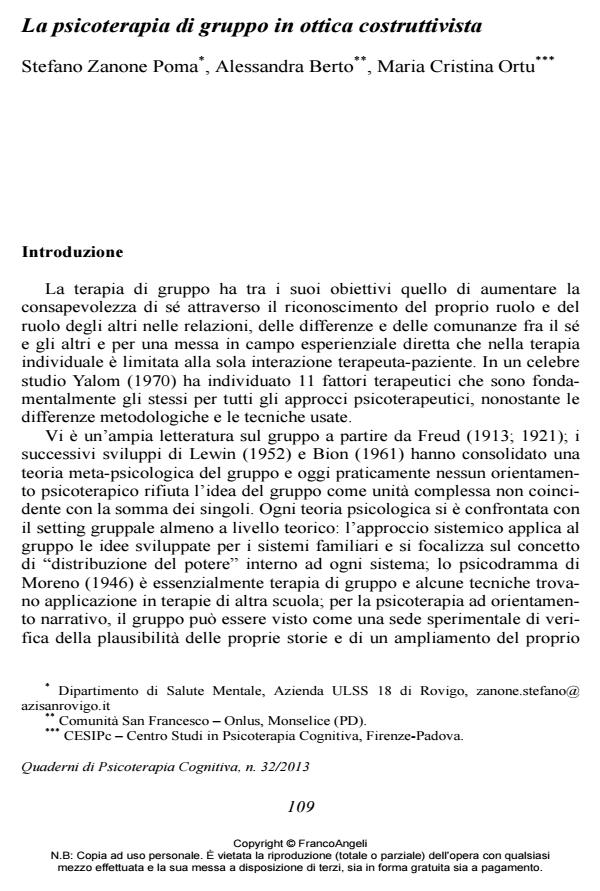Group psychotherapy from the perspective of constructivism
Journal title QUADERNI DI PSICOTERAPIA COGNITIVA
Author/s Poma Stefano Zanone, Alessandra Berto, Maria Cristina Ortu
Publishing Year 2013 Issue 2013/32
Language Italian Pages 13 P. 109-121 File size 446 KB
DOI 10.3280/QPC2013-032008
DOI is like a bar code for intellectual property: to have more infomation
click here
Below, you can see the article first page
If you want to buy this article in PDF format, you can do it, following the instructions to buy download credits

FrancoAngeli is member of Publishers International Linking Association, Inc (PILA), a not-for-profit association which run the CrossRef service enabling links to and from online scholarly content.
Group-therapy is targeted at the promotion of personal awareness by identifying own and others’ roles in the context of a new experience of relations. Stemming from George Kelly’s basic principles, the authors review personal construct psychology and its hermeneutic approach in their applicability to group setting by viewing the circularity of multiple reciprocal relations (and their "viability"). Then, some interesting treatment protocols are exposed. In the authors’ opinion, constructivist method can be feasible both for focused therapies and medium-long ones; this thanks to a variability of techniques that can be used depending on the personal construct systems of the participants and on the ongoing process in the group. Constructivist group-therapy may represent a valuable tool in the institutional context whether in out-patients facilities or in therapeutic communities.
Keywords: Psychotherapy, group, constructivism, hermeneutics
- Stato dell'arte nella psicoterapia dell'anziano: una pluralità di approcci Laura Carelli, Annalisa Lafronza, Rita Pezzati, Barbara Poletti, Pietra Romano, in QUADERNI DI PSICOTERAPIA COGNITIVA 37/2015 pp.107
DOI: 10.3280/QPC2015-037007
Poma Stefano Zanone, Alessandra Berto, Maria Cristina Ortu, La psicoterapia di gruppo in ottica costruttivista in "QUADERNI DI PSICOTERAPIA COGNITIVA" 32/2013, pp 109-121, DOI: 10.3280/QPC2013-032008